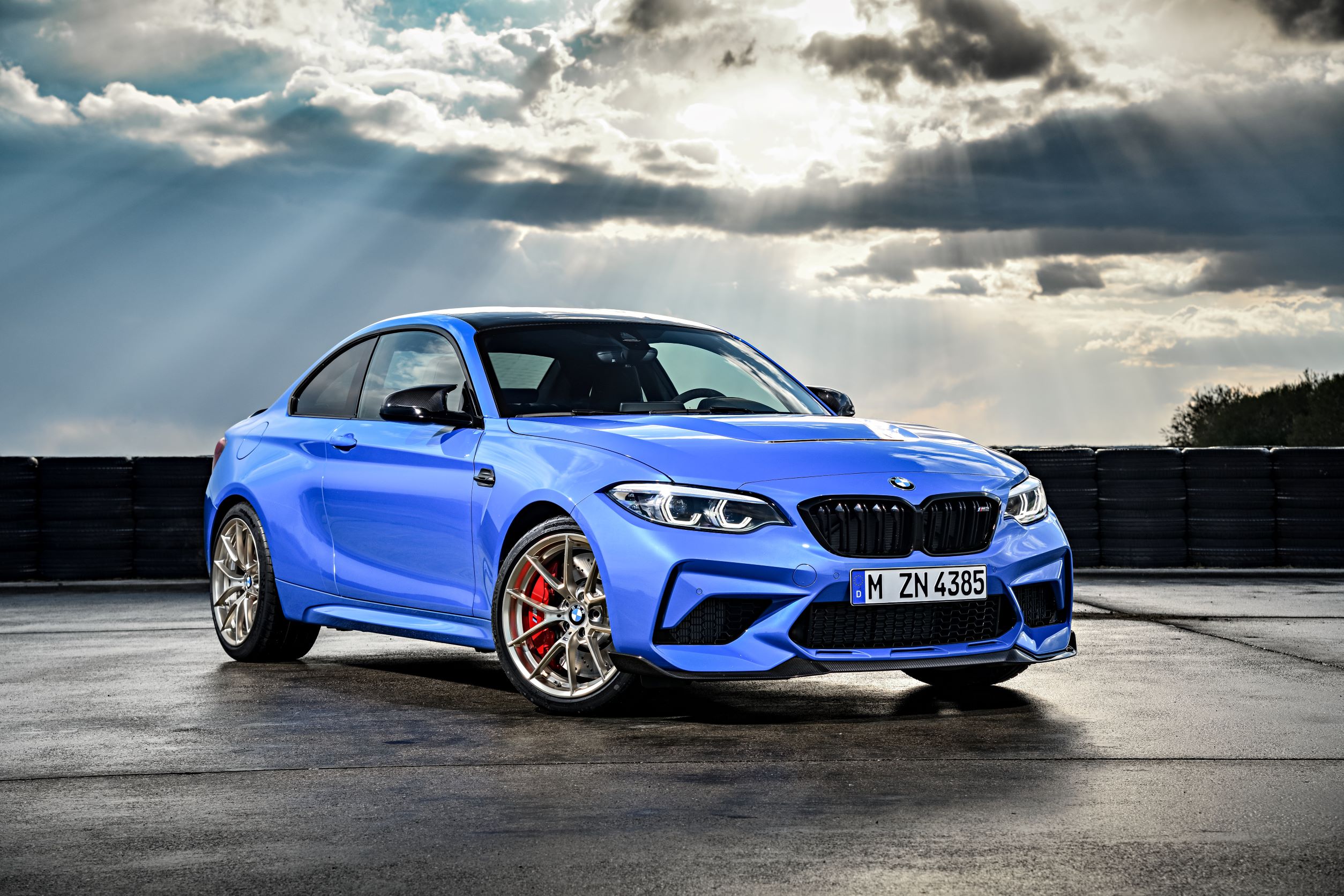
What is it?
The limited-run, special edition farewell to arguably BMW M division’s most lauded model of the last decade – the M2.
While opinions of the M3, M4, M5 and M6 have been mixed, the M2 has earned generally positive reviews for its ability to pack a lot of excitement into a small package. Hailed as a throwback to the iconic E30 M3, this compact coupe has been given a motorsport-inspired upgrade as a send-off to create the M2 CS we’re testing here.
The CS is a step up from the previous M2 Competition and features a range of mechanical upgrades from its big brother, the M4, to ensure it earns its place at the top of the heap.
READ MORE: 5 things you need to know about the BMW M2 CS
Does it have any racing pedigree?
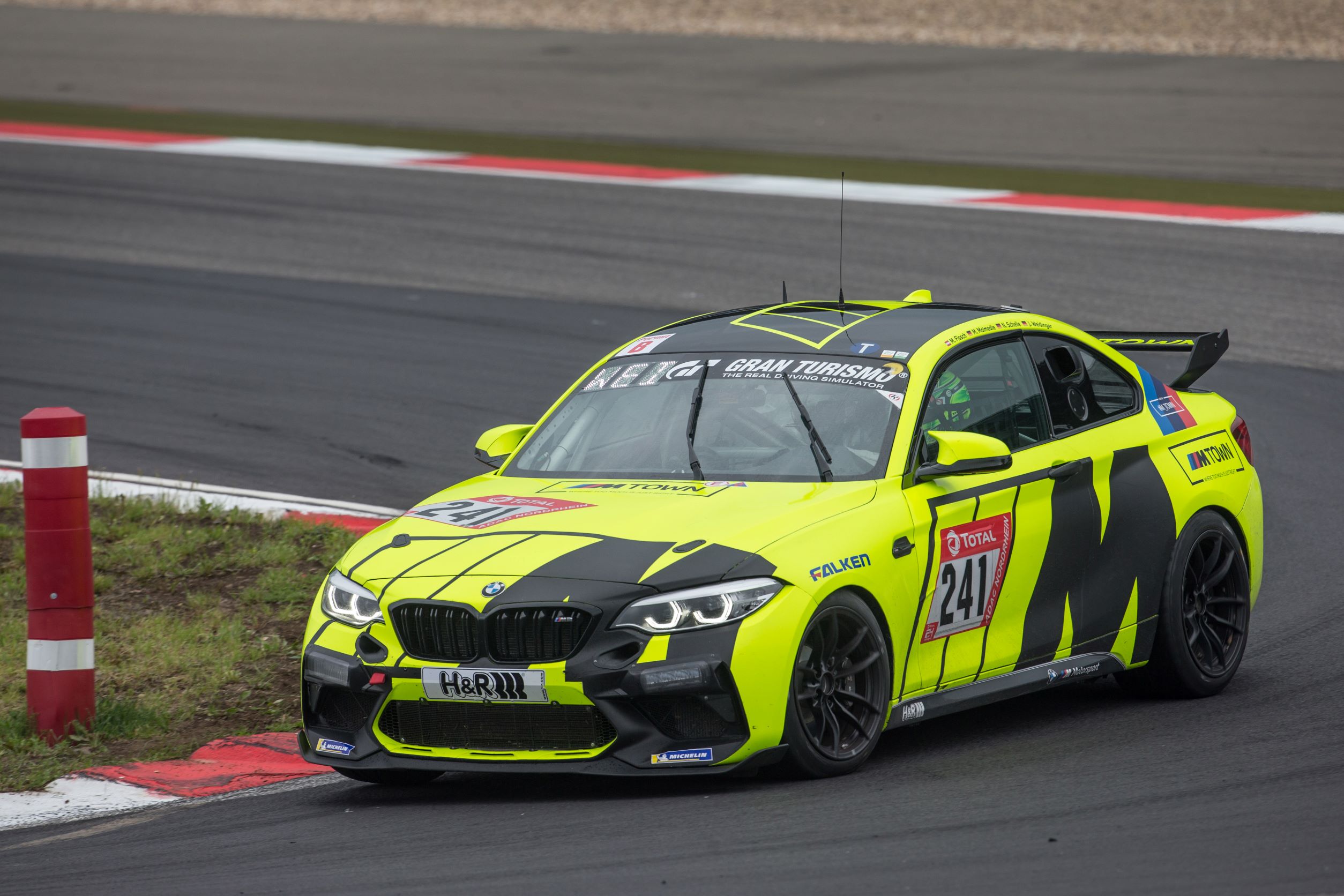
Not only does the M2 draw from BMW M’s long, rich history of motorsport, the M2 CS benefits directly from lessons learnt on the track. That’s because the company also builds the M2 CS Racing, a track-ready version of the car that has been designed for both one-make series and endurances races such as the Nurburgring 24-hour.
What’s under the bonnet?
The M2 CS uses the same 3.0-litre twin-turbo inline six as the previous generation M4 Competition. That means it’s tuned to make 331kW of power and 550Nm of torque, a 29kW upgrade on the M2 Competition and a massive 59kW/85Nm boost on the original single-turbo M2 engine.
It’s paired to either a six-speed manual gearbox or, as in our test car, a seven-speed dual-clutch transmission.
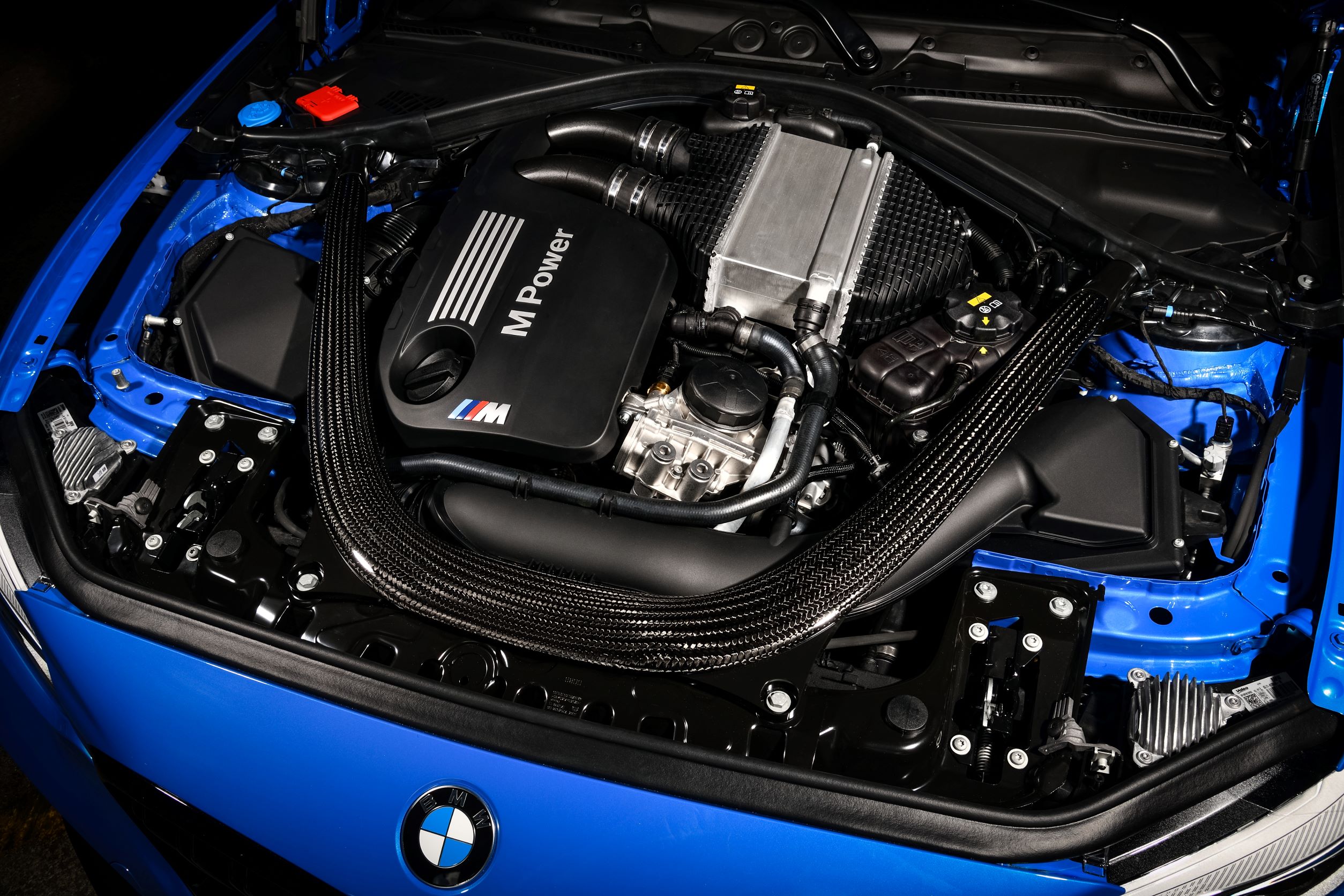
The engine is, quite simply, a gem. One of the criticisms of recent M cars is that the engines can often feel too peaky, with the best performance only available in a narrow window. That’s not the case with this particular version, which hits its sweet spot at 4000rpm and pulls hard and smoothly all the way to the 7000rpm redline.
That linear power delivery is key to the appeal of the M2 CS, allowing it to operate in a wider performance window and therefore feel more comfortable and accessible on the road. When you find yourself in a series of corners you can leave the M2 in a taller gear and trust that the torque will pull you out, without short-shifting to access peak power all the time.
It also makes a glorious noise as it does so too, producing a classic six-cylinder growl that turns to a shriek as you head to the redline.
REVIEW: 2021 BMW M4 Competition
It’s proper quick too, with the dual-clutch capable of running 0-100km/h in just 4.0 seconds, while the manual takes 4.2 seconds; assuming you’re good enough to change gears quick enough.
There are three modes to set the engine and transmission response too – Efficient, Sport, Sport Plus – with the former the best for everyday use, Sport ideal for road driving and Sport Plus arguably best left for the track thanks to its ability to unleash the full potential of the straight-six.
That’s because this is a potent engine and one that does take some skill to tame because it can be very aggressive low down in the rev range and on slippery roads. For example, you can switch off the stability control completely, but you’ll want to be very confident in your ability because the engine can overwhelm the tyres easily. We experienced wheelspin when gently accelerating from traffic lights on a wet road when in ‘Efficient’, and when accelerating hard the engine had enough grunt to overwhelm the tyres at 80km/h – so this is a car not for the timid or inexperienced.
And, just to be clear, these aren’t dodgy retread tyres either, the M2 CS comes standard with a set of very grippy Michelin Pilot Sport Cup 2, and even though these are better in the dry than wet, it does underline just how potent and fierce the engine can be.
How does it handle?
The M2 CS has some major changes to the chassis and suspension to improve its handling. The most significant is the adoption of the same Adaptive M suspension found in the M4 plus there’s also the M Active differential and the stickier rubber.
There’s also plenty of Carbon fibre reinforced plastic (CFRP) used throughout the car to reduce weight and improve handling. Key CFRP components include the bonnet and roof as well as a front strut brace to help rigidity.
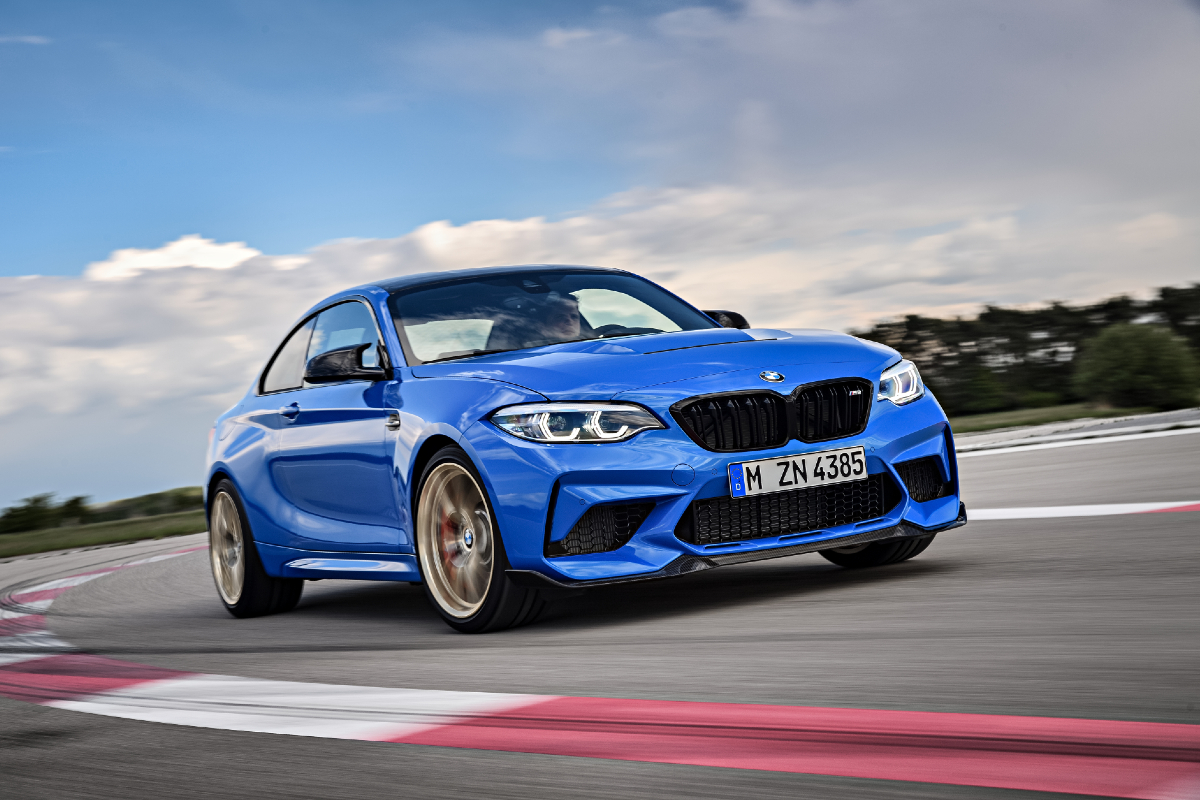
M division has tuned the suspension and steering to offer three different drive modes – Comfort, Sport and Sport Plus – that you can switch between independently. These work in partnership with the engine modes, so you can tailor the three key driving functions depending on your preferences. When you find settings you like you can program the ‘M1’ and ‘M2’ buttons on the steering wheel so you can bring up your favourite combinations at the press of a single button.
Personally, for road driving I found having the engine in Sport Plus, suspension in Comfort and steering in Sport was the ideal set-up. That allows you to unleash the full potential of the engine while getting the most compliance from the suspension, which simultaneously manages to be a strength and arguably the M2’s Achilles heel.
That’s because despite being adaptive, the suspension is extremely stiff even in Comfort. At times the ride can be a bit punishing, frankly. With the stiff set-up and low profile tyres it tends to thump over every bump or join in the road. But, find yourself on smooth road and the suspension set-up endows the CS with fantastic grip and super responsive handling.
Or, to put it another way, it’s ideal for a racetrack but compromised for the road.
The whole driving experience feels like the M2 CS has been tuned for regular track use, with the brakes providing excellent and consistent stopping power. That’s because the brakes are larger than the standard M2, measuring 400mm at the front and 380mm at the back, clamped by six- and four-piston calipers respectively.
While the standard Michelin Pilot Sport Cup 2 tyres are excellent and provide fantastic grip, if you don’t plan on making regular track visits in your M2 CS BMW Australia will fit a set of Michelin Pilot Super Sport for no-extra cost. These are better suited to everyday driving conditions, especially the wet.
These tyres wrap around new 19-inch Y-spoke forged wheels, which weigh just 9kg at the front and 10kg on the rear. These come standard in high-gloss black but are also available in matte gold, which was how our test car came and the combination of gold with bright blue paint worked surprisingly well.
Where would you most like to drive it?
The M2 CS has been tuned on the Nurburgring Nordschleife, taking feedback from BMW’s racing M2 models and M division’s decades of experience, so it’s the easy answer.
It feels like the ideal car for someone looking to take their track day experiences to the next level without buying a new Porsche. The M2 CS feels tuned to be pushed to its limits on a regular basis, in fact it feels at its best the harder you push it which means if you really want to get the best from it you’ll need to visit a track.
What’s the interior like?
If you’ve seen one BMW interior, you’ve seen them all as the company has a habit of producing very similar cabins across its entire range. However, to ensure the M2 CS stands out there are some unique touches.
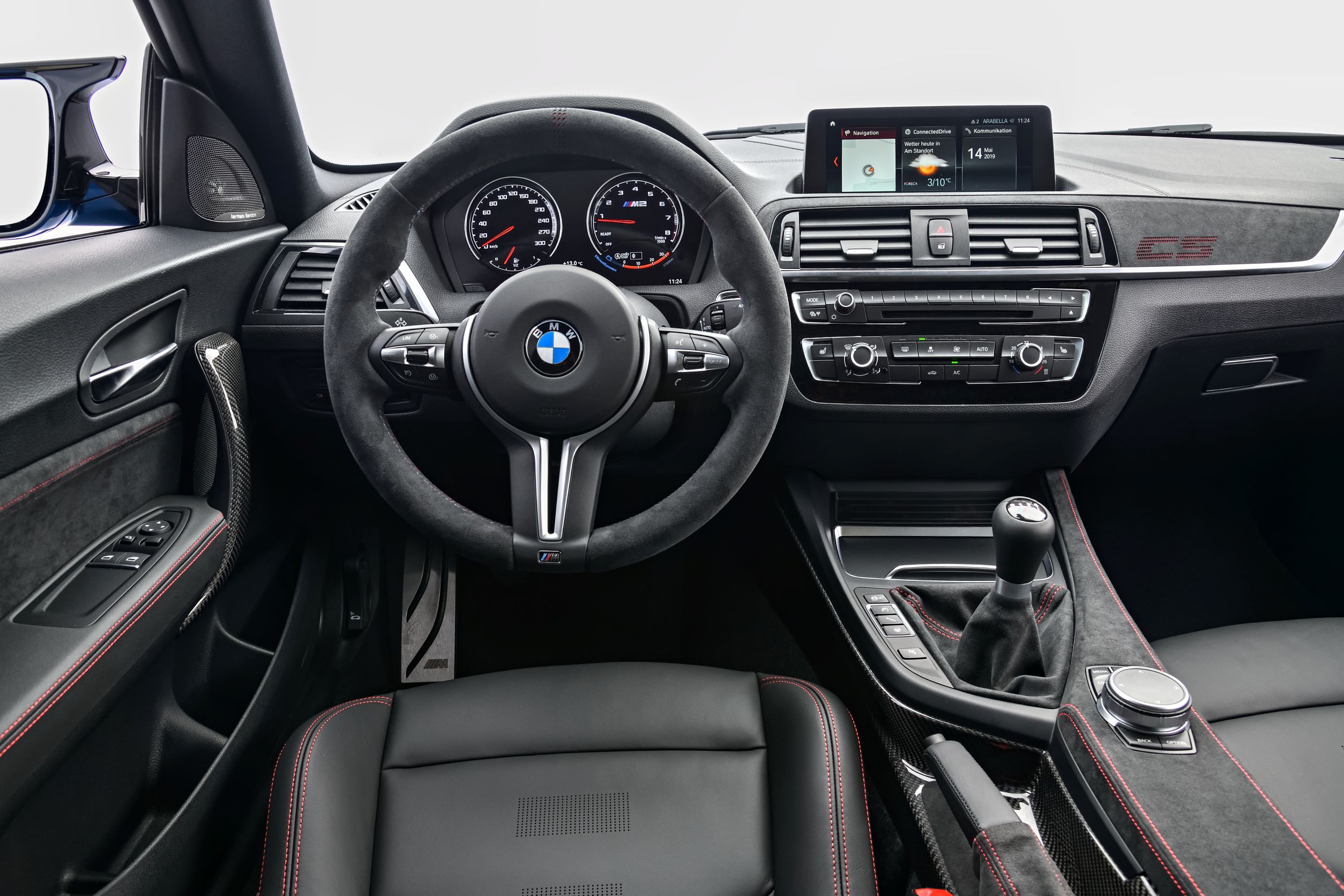
The biggest one sits in front of the driver, a thick-rimmed steering wheel trimmed in Alcantara. BMW M has a preference for chunky rims and while it’s personal preference, in this reviewer’s opinion the M2 CS wheel is a bit too thick; it doesn’t sit comfortably in your hands.
Another obvious M2 CS feature is the ‘CS’ stitched into the Alcantara dashboard trim, to serve as another reminder that you’ve got the special edition.
The sports seats are excellent, offering good support for when you want to push on while still being comfortable enough for daily use.
One peculiarity of the cabin is the very small brake pedal, unlike a typically larger brake pedal you find in auto models BMW appears to have used the same pedal for the manual and simply removes the clutch pedal, which is highly unusual and comes across as strange cost-cutting.
Is it good value for money?
The M2 CS is priced from $139,900 (plus on-road costs), which puts it in an interesting spot in the BMW line-up. It means the CS commands a $19,000 premium over the M2 Competition, but it also puts it within $10k of the new M4 and $20k of the M4 Competition, so it has plenty of rivals before you even look at other brands.
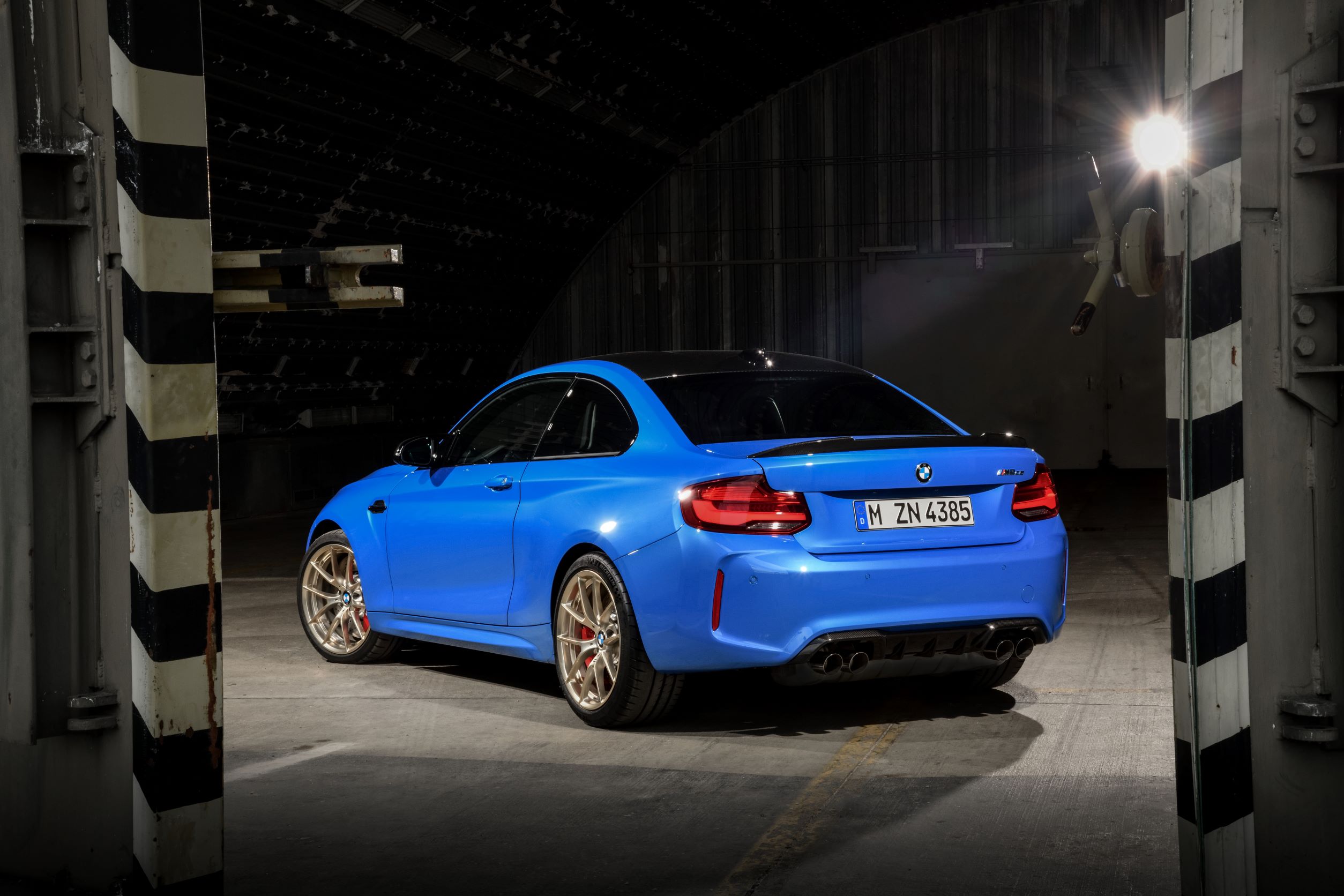
When you do take a wide view, you’re looking at some serious sports cars for similar money, including the Porsche Cayman S (from $139,600), Lotus Exige Sport 390 (from $149,950) and Alpine A110 (from $97,000), which says something about the performance of the M2 CS.
While I would advise buying any car as an investment, the M2 CS should hold its value well in the coming years as this is likely to be remembered as a BMW M car classic. As we usher in a new era of electric performance cars, this will be one of the last unadulterated petrol-powered machines.
Would I buy one?
I’d be happy to park the M2 CS in my garage and despite its potential collector status I’d put as many kays on it as possible.
This is a car to be driven, not hidden.
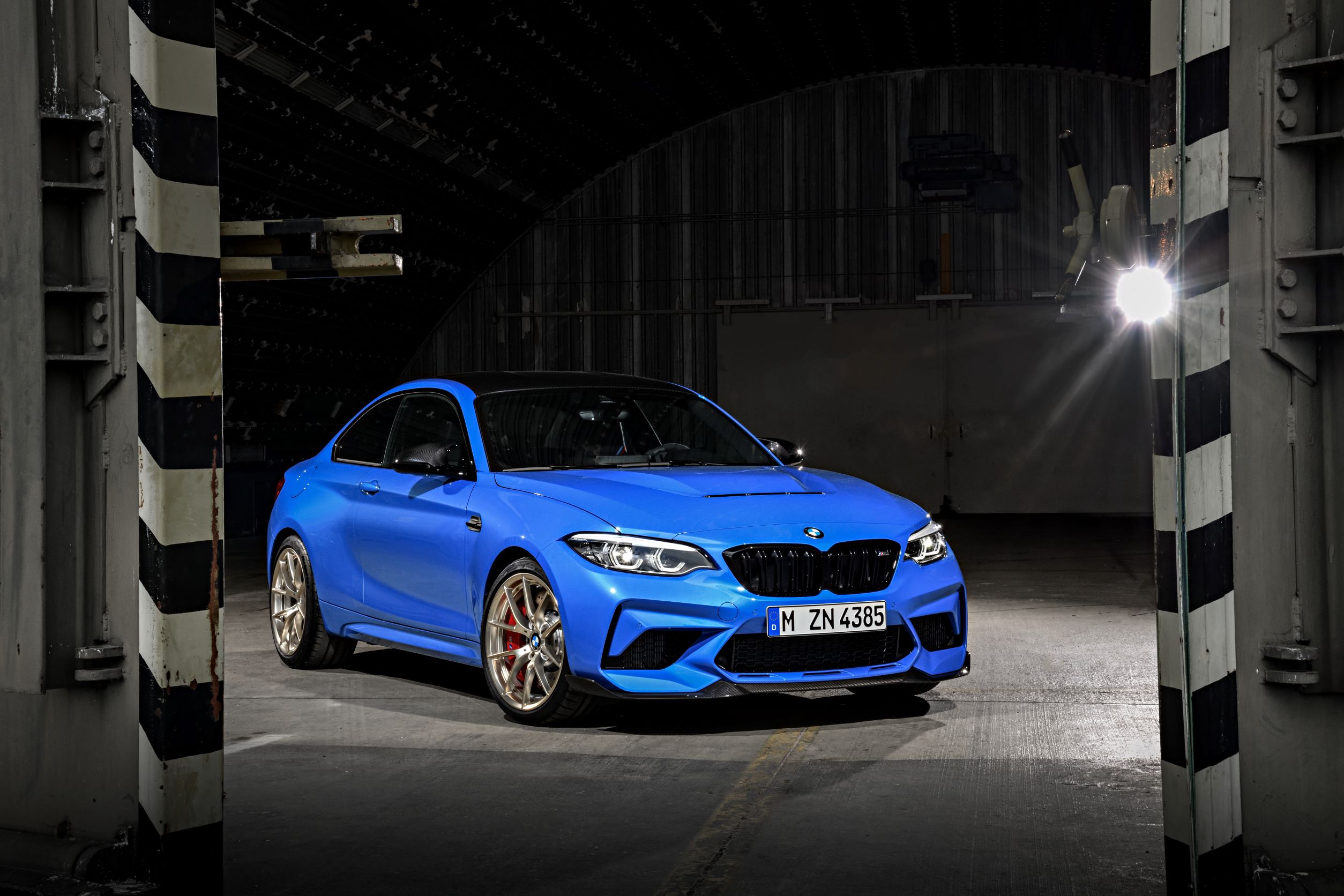
2021 BMW M2 CS price and specifications
| Price: | From $139,900 plus on-road costs |
| Engine: | 3.0-litre six-cylindertwin-turbo petrol |
| Power: | 331kW at 6250rpm |
| Torque: | 550Nm at 2350-5500rpm |
| Transmission: | Seven-speed dual-clutch automatic, rear-wheel drive |
| Fuel use: | 9.1L/100km |
| Wheels: | 19-inch alloys |
| Tyres: | 245/35 ZR19 (front), 265/35 ZR19 (rear) |
| Length: | 4461mm |
| Width: | 1871mm |
| Height: | 1414mm |
| Weight: | 1575kg |
| 0-100km/h: | 4.0 seconds |













Discussion about this post